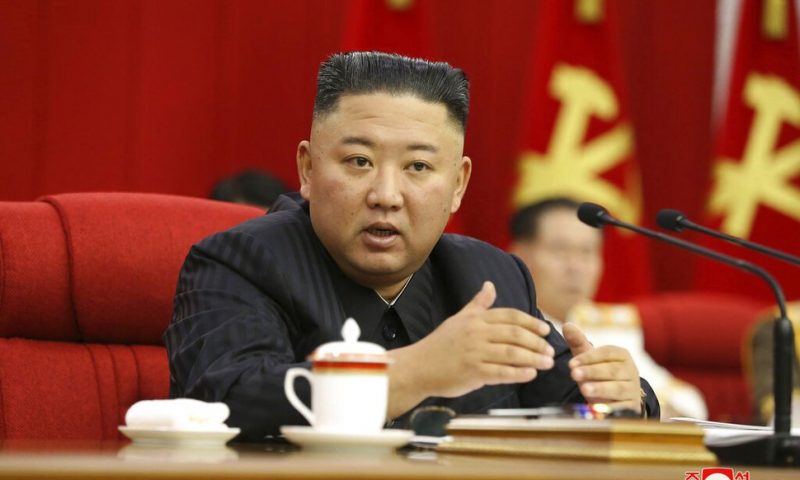Pyongyang must prepare for dialogue with President Biden but also ‘confrontation,’ Kim Jong Un told his government on Friday as the hermit kingdom reels from internal pressure.
North Korean leader Kim Jong Un on Friday instructed his government to prepare for dialogue with the U.S. but also for “confrontation,” citing the need “to protect the dignity of our state.”
North Korea’s state news service KCNA relayed those remarks from Kim during a meeting of the government’s Central Committee, specifically about “the policy tendency of the newly emerged U.S. administration,” referring to President Joe Biden. Kim stressed “the need to further enhance the strategic position and active role of our state and create favorable external climate on our own initiatives,” KCNA reported.
The aggressive rhetoric serves as a startling reminder of how relations between the U.S. and North Korea have stalled, following three summits the Trump administration organized that failed to produce any tangible positive outcomes. A subsequent freeze in relations has been further exacerbated by the coronavirus pandemic, with North Korea – already isolated in its foreign policy – becoming among the most locked-down countries worldwide.
The Biden administration deferred on how it would proceed with North Korea in its first weeks, citing the need for a comprehensive, government-wide analysis of U.S. policy toward the country and its aspiring intercontinental nuclear weapons program. Revealing a few conclusions of that review last month, it appears Biden will find a middle ground between his former boss, President Barack Obama, who sought “strategic patience” while Pyongyang nonetheless improved its nuclear weapons and missile programs, and the “grand bargain” that Trump pursued.
The result is an underwhelming mix of inputs based on the U.S. goal of containing the potential for nuclear war while acknowledging the needs of its allies and North Korea’s nearest neighbors, chiefly South Korea’s desire for diplomacy with the North while Japan seeks strictly to deter its nuclear ambitions.
It has ultimately failed to achieve the main problem facing the U.S., as the Council on Foreign Relations pointed out in an analysis note last month: “how to dissuade North Korea from pursuing unremitting nuclear development objectives to guarantee regime survival, stand equivalent to the U.S. as a nuclear power, and reshape the regional strategic environment in North Korea’s favor.”
“To be fair,” it adds, “no U.S. administration has found a satisfactory answer to this question since U.S. satellites began surveilling North Korean nuclear efforts in the 1980s. But this failure is more indicative of North Korea’s isolation, persistence, and weakness than of U.S. policy.”
North Korea’s latest threats come as the country grapples with the effects of the coronavirus – complicating any U.S. attempts at outreach. Officials know little about the spread of the virus within the country, amid its lockdowns on travel and the spread of information since the virus first emerged. However, during an earlier Central Committee meeting this month, Kim warned of continued food shortages, economic issues and other “prolonged” measures in an attempt to protect against fallout from the virus.
“Kim’s speech suggests North Korea will remain internally focused as it deals with COVID-19 and economic issues, deprioritizing outreach to the United States or its weapons program,” according to an analysis from private intelligence firm Stratfor. “Chinese economic and vaccine assistance will also prove critical during this time, increasing Beijing’s influence in the country.”

